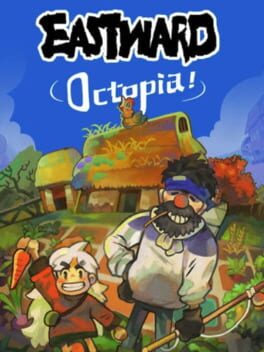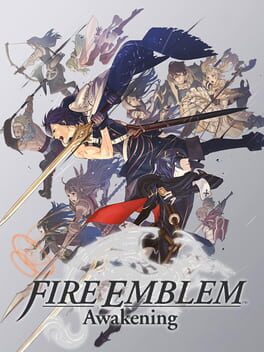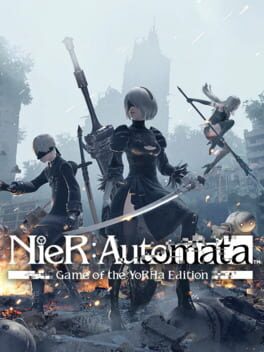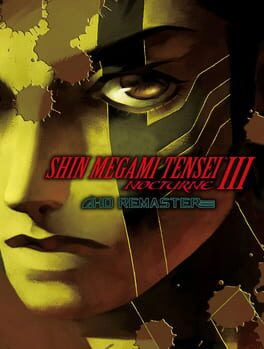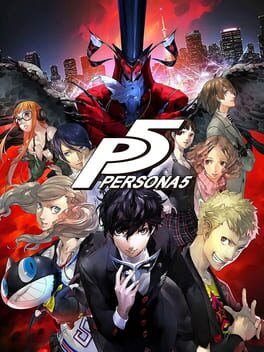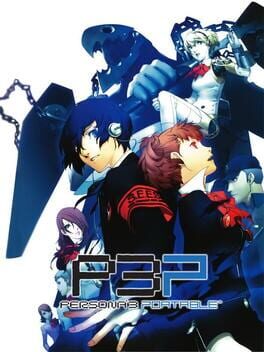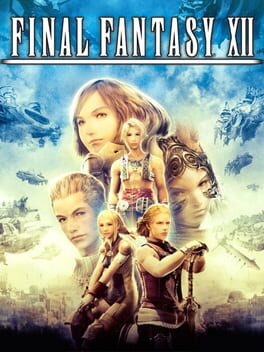casperrlin
My first real experience with anything Dungeons and Dragons related! I found a lot of the ideas super fascinating and I was also able to see how these concepts have influenced other fantasies which was cool. There are some silly concepts to me, like the whole alignment thing is a bit cartoony in how strictly outlined it is. Still, there is a charm in it, and the game does also manage to create some really interesting story beats and locales with it. I do think this being my first introduction to the Planscape campaign—and DnD as a whole —definitely benefitted my experience. Learning about the world with fresh eyes was the thing that kept me the most hooked in playing the game. Was I well versed in the setting already, I do not know if I would have found the experience as satisfying. The main story is intriguing and the characters are solid, but I felt like a majority of the writing I was reading mainly centred around world building. To balance out all the lore, I wish there were way more dialogue interactions with your companions. The stuff that is there is great—well written and full of personality—there just isn’t as much as I thought there would be for a game like this. I would constantly check in on my party members to see if they had any new input after story beats and a lot of the time they didn’t, even in cases where I feel like the character would most definitely have something to say. Obviously, this game has a wealth of content and writing and not everything will be covered. It’s just the classic catch-22 that when a game is really fleshed out in some regards, the parts that aren’t stand out to the player a lot more.
Moving past writing and narrative and focusing more on gameplay, I do unfortunately have to agree with the consensus that the gameplay is pretty meh. There are certain mechanics that are designed in a way where it feels like the priority was to make it feel more ‘realistic.’ For example, certain vendors won’t buy certain items, character’s can’t rest in an inn unless they’re all right next to TNO when speaking to the inn keeper, etc. I understand these flourishes are to make the world feel more grounded and authentic, but man is it just irritating and pulls me out of the experience more than anything. You could argue that these are rather minor nitpicks of UI and control, and for any other game where the gameplay was more substantive, I think that would be fair. But Planescape: Torment’s gameplay is pretty much all dialogue and menus all the way down, so these minor complaints do become pretty large sticking points for me. I also found the logging of information to be a bit confusing. The game does keep a record of events, which is great, but how it goes about choosing what is logged and what isn’t is weird to me. There are some pretty major revelations that aren’t logged at all while minor events and redundant info fill up the journal, making it harder to navigate. The quests section doesn’t always list all tasks, nor does it always include the relevant information. As a result, some quests can be really esoteric. One could argue that such little handholding is refreshing, but it makes little sense to me that the character you play, or the companions you travel with, or even the npc who gave you the mission in the first place, would not have any kind of advice or info to give.
Simply put: this game is clunky, and there is no point where it feels more clunky than during combat. It’s super messy to try and enact any kind of strategy beyond the complexity of luring a target and jumping them. Not that that matters because it kind of feels like wailing on enemies is the most optimal way to play anyways. There are some really cool spells, but finding the handful of ones that are actually useful is a drag. There aren’t many encounters in the game and rest stops are spread out just far enough where you don’t really get much opportunity to experiment with magic unless you’re straight up grinding. Even when I got a good magic setup going, it was difficult for me to find reason to use them. Most enemy encounters are fairly easy; the ones that aren’t are usually battles where the game just throws ridiculous amounts of enemies at you. Those fights end up burning through a lot of your most useful spells before you’re back to just wailing on enemies again. I do concede that perhaps my gripes with the combat could simply be because of my unfamiliarity with DnD, but the game does not do a very good job at explaining the ruleset of 2nd edition at all. Thankfully, combat is fairly light in this game though it does ramp up in the later half, and the game does kinda take a nosedive in quality because of it. Granted, you can probably still choose to avoid most of it by running away, but then you’re not left with much in the second half. The later parts of this game feel a lot smaller and more shallow than the earlier sections. Less to explore, simpler quest lines, regurgitation of information you already know, etc. The first half of the game is definitely the stronger part in my reckoning.
I know that most of my review has been criticism, but most my critiques revolve around elements the game doesn't prioritize. The focus really is the story/characters and creating an atmosphere that immerses the player, all of which this game does superbly. I now have a lot more motivation in trying other cRPGs, a genre which I had always found intimidating beforehand. But Planescape: Torment, along with Disco Elysium and Citizen Sleeper, has definitely piqued my interest.
P.S. the reason why I got interested in this game in the first place was because of this drawing of Annah by Dungeon Meshi mangaka Ryoko Kui: https://www.reddit.com/r/DungeonMeshi/s/SQHT62QsLd
So once again I must thank Ryoko Kui for an amazing experience o7
Also read and or watch Dungeon Meshi
Moving past writing and narrative and focusing more on gameplay, I do unfortunately have to agree with the consensus that the gameplay is pretty meh. There are certain mechanics that are designed in a way where it feels like the priority was to make it feel more ‘realistic.’ For example, certain vendors won’t buy certain items, character’s can’t rest in an inn unless they’re all right next to TNO when speaking to the inn keeper, etc. I understand these flourishes are to make the world feel more grounded and authentic, but man is it just irritating and pulls me out of the experience more than anything. You could argue that these are rather minor nitpicks of UI and control, and for any other game where the gameplay was more substantive, I think that would be fair. But Planescape: Torment’s gameplay is pretty much all dialogue and menus all the way down, so these minor complaints do become pretty large sticking points for me. I also found the logging of information to be a bit confusing. The game does keep a record of events, which is great, but how it goes about choosing what is logged and what isn’t is weird to me. There are some pretty major revelations that aren’t logged at all while minor events and redundant info fill up the journal, making it harder to navigate. The quests section doesn’t always list all tasks, nor does it always include the relevant information. As a result, some quests can be really esoteric. One could argue that such little handholding is refreshing, but it makes little sense to me that the character you play, or the companions you travel with, or even the npc who gave you the mission in the first place, would not have any kind of advice or info to give.
Simply put: this game is clunky, and there is no point where it feels more clunky than during combat. It’s super messy to try and enact any kind of strategy beyond the complexity of luring a target and jumping them. Not that that matters because it kind of feels like wailing on enemies is the most optimal way to play anyways. There are some really cool spells, but finding the handful of ones that are actually useful is a drag. There aren’t many encounters in the game and rest stops are spread out just far enough where you don’t really get much opportunity to experiment with magic unless you’re straight up grinding. Even when I got a good magic setup going, it was difficult for me to find reason to use them. Most enemy encounters are fairly easy; the ones that aren’t are usually battles where the game just throws ridiculous amounts of enemies at you. Those fights end up burning through a lot of your most useful spells before you’re back to just wailing on enemies again. I do concede that perhaps my gripes with the combat could simply be because of my unfamiliarity with DnD, but the game does not do a very good job at explaining the ruleset of 2nd edition at all. Thankfully, combat is fairly light in this game though it does ramp up in the later half, and the game does kinda take a nosedive in quality because of it. Granted, you can probably still choose to avoid most of it by running away, but then you’re not left with much in the second half. The later parts of this game feel a lot smaller and more shallow than the earlier sections. Less to explore, simpler quest lines, regurgitation of information you already know, etc. The first half of the game is definitely the stronger part in my reckoning.
I know that most of my review has been criticism, but most my critiques revolve around elements the game doesn't prioritize. The focus really is the story/characters and creating an atmosphere that immerses the player, all of which this game does superbly. I now have a lot more motivation in trying other cRPGs, a genre which I had always found intimidating beforehand. But Planescape: Torment, along with Disco Elysium and Citizen Sleeper, has definitely piqued my interest.
P.S. the reason why I got interested in this game in the first place was because of this drawing of Annah by Dungeon Meshi mangaka Ryoko Kui: https://www.reddit.com/r/DungeonMeshi/s/SQHT62QsLd
So once again I must thank Ryoko Kui for an amazing experience o7
Also read and or watch Dungeon Meshi
2024
The original Eastward is a game that brushes upon world ending threats, grief and existentialism. However, the parts I remember clearest and that have stayed with me the longest were the smaller moments in between all the world ending stakes. Brief reprieves from the larger narrative where you would get to spend time with the numerous off-beat, unique characters the game would have to offer. The colourful cast, accompanied by gorgeous, cartoony pixel art with expressive animation and soothing ost, made Eastward such a cozy experience despite the darker themes the game sometimes reached. So when Octopia, a farming simulator DLC, was announced I was ecstatic. Getting to revisit the world with a more relaxed gameplay loop seemed like a match made in heaven. And for the most part, it is. I didn’t realize just how much I liked the cast of Eastward until I got to revisit some of them in this DLC. Getting to interact with them again and even further—sharing a meal with them, helping them make a home was all so incredibly gratifying. I truly hope more of my favourite games get farming simulator AU DLCs; it honestly serves as such a great epilogue for a story and goodbye to a cast of characters. Moving on to the gameplay, this is actually my first farming simulator so I don’t have much to compare it to. The farming, cooking, building and resource management never gets all that complex or difficult, but its simplicity is what makes it such a great chill game to turn off your brain and relax to, and consequently get addicted to. While no individual mechanic develops much depth, there is a wealth of things you can do on any given day which helps keep you busy. I do wish the game offered more incentive to farm and cook new things beyond completion rate. There are a few side quests here and there that will ask you for certain recipes, but not nearly as many as one would think, and the rewards are usually lack lustre. The DLC definitely loses steam the further you get into it—once you develop a more reliable system, save enough resources, I found myself ending my days faster just waiting for the scripted content to come. Of course, the scripted content is great, I just wish there was more of it. Ultimately though, I know I gotta say goodbye to Eastward and its characters at some point, and Octopia was a pretty great farewell.
Not to sound like every Dark Souls fan ever, but this game really did alter the chemicals in my brain in terms of what I look for in video games. Admittedly, the game does show its age in its clunky feel and basic (in comparison to later soulsborne installments) boss fights. The quality does also take a dip in the second half of the game, though not as drastic as some make it out to be in my opinion. Despite all of this, Dark Souls 1 is still probably my favourite of the series, and maybe game period. There’s just a magic and atmosphere to it that I don't think many games have; it’s a game where simply thinking back on it brings me such immense pleasure and joy. While it may not be as big in scale or bombastic as an Elden Ring or a Dark Souls 3, the depth is still there. In fact, the smaller scale world is what makes it so great. The connectivity of all the levels in the first half of the game is such a satisfying experience to uncover; the elevator from undead parish to firelink shrine is, no joke, one of the greatest experiences I have had in gaming. The game is full of so many of these smaller eureka moments, and the familiarity you eventually gain with the world matches the novelty of experiencing it all for the first time. Exploring a world that has already had all its major events happen is such a interesting experience. Now obviously the other souls games have this too. However, whereas games like Elden Ring, Bloodborne, or even Dark Souls 3 are apocalyptic, Lordran feels proper dead already. There is a quietness and solace to the game that none of the others quite capture. Part of that is probably the fact the game is simply not as technically advanced, so cannot do as much. Still, it invokes a wanderlust and melancholy all the same. The game’s world very much feels like stumbling upon a chessboard that was completed years ago, all the pieces already in their final places. Enemy AI just stands around in their designated positions like in most games, but the themes actually justify the reasoning. Beings in Lordran have lost their purpose, they’ve hallowed. NPCs could very much befall the same fate, unless players intervene and complete their quests. Of course, souls games are famously known for their tragic storylines, so a player may feel compelled not to complete any of their side quests. Instead, players may choose to let the NPC stand there in their designated positions for the rest of time, stagnating their ambitions for them, much like the hollows. And if the player chooses to quit their own journey—perhaps they find the obstacles too challenging—they too befall the same fate. The only few boons a player has in this unforgiving world is the co-op the game offers. The ability to summon real life strangers for aid, but only in short bursts of time before they must return to their own journeys. Though those same strangers could also choose to act as hindrances instead… Dark Souls is a game that does not shy away from making players feel proper despair. But it also teaches us perseverance, to look for hope and strive onwards even in the daunting face of seemingly impossible odds or bleak outcomes. The game does such a fantastic job of conveying all of these themes through gameplay. Interactions in this game, whether they be npc or multiplayer, are like encountering candles while navigating the dark. They won’t last forever, and that’s okay. Their light and warmth provides strength to continue on. Players aren’t simply shown these themes to ponder about later, they experience it firsthand. Dark Souls 1 is like uncovering an old, dusty book at the back of the library. It’s unassuming and covered in cobwebs, but once you open it you discover one of the most enriching and deepest worlds ever created,
2020
The game that made me step out of my turn based rpg comfort zone I had throughout my teen years. Addictive gameplay, killer artstyle/music/voice acting, and genuinely wonderful writing. The Greek pantheon has been adapted to Hades and back, but this game might have my favourite interpretations? The gods are so wonderfully petty and vain in all their unique ways, but still have a charm and relatability to them that makes the Greek mythology so compelling. The choice to depict them as a dysfunctional family is just perfect. Plus, they’re hot.
A lot of the same problems I had with Replicant, though I found Automata compelling enough to complete all the routes (that and completing the game requires less legwork to access them all). Beautiful world, presentation and some memorable characters. The gameplay still hasn’t been all that improved imo. Uninteresting quests (gameplay wise, writing can be good), lack of enemy variety, shallow and easy combat that the game tries to balance by making the later enemies damage sponges that practically one-hit you. I really respect the clearly strong and unique vision this game has, but I definitely appreciate it more than I like it.
2017
A lot of the same problems I had with Replicant, though I found Automata compelling enough to complete all the routes (that and completing the game requires less legwork to access them all). Beautiful world, presentation and some memorable characters. The gameplay still hasn’t been all that improved imo. Uninteresting quests (gameplay wise, writing can be good), lack of enemy variety, shallow and easy combat that the game tries to balance by making the later enemies damage sponges that practically one-hit you. I really respect the clearly strong and unique vision this game has, but I definitely appreciate it more than I like it.
Beat the first route, but didn’t have the interest or energy to grind out the rest of the routes. the game has great character moments, an interesting world and fantastic presentation, but my god is the gameplay antiquated. Really shallow side quests and combat that is flashy and fun at first, but lacks depth (compared to a DmC) and enemy variety to keep it interesting.
My first foray into the mainline SMT games as a Persona fan.
I really like the darker, more apocalyptic and fantastical setting. While the game doesn’t have the slick style the Persona games have developed, it makes up for it with some of the most striking visuals I’ve seen in gaming. Some really great abstracted/surrealist imagery in here.
Hate to say it however, I do kinda miss the visual novel aspects of the Persona games. I found they provided the perfect mental break when I was feeling a bit exhausted from all the turn based dungeon crawling. Nocturne is all dungeons all the time, and I simply don’t think the combat (as good as it is) or the level designs (which fluctuates in quality a lot imo) are good enough to sustain my interest. It doesn’t necessarily even need visual novel gameplay, just a more solid narrative. But the story in this game is fairly light, especially for jRPG standards. The game primarily focuses around philosophies and themes; the characters are less characters and more so just representations of their respective ideals. This would be fine were it not for the fact I think a lot of the views presented in this game are shallow and lacking nuance. This + the lack of any meaningful time spent with the characters to develop a connection meant I wasn’t all too invested in the world beyond the imagery.
I really like the darker, more apocalyptic and fantastical setting. While the game doesn’t have the slick style the Persona games have developed, it makes up for it with some of the most striking visuals I’ve seen in gaming. Some really great abstracted/surrealist imagery in here.
Hate to say it however, I do kinda miss the visual novel aspects of the Persona games. I found they provided the perfect mental break when I was feeling a bit exhausted from all the turn based dungeon crawling. Nocturne is all dungeons all the time, and I simply don’t think the combat (as good as it is) or the level designs (which fluctuates in quality a lot imo) are good enough to sustain my interest. It doesn’t necessarily even need visual novel gameplay, just a more solid narrative. But the story in this game is fairly light, especially for jRPG standards. The game primarily focuses around philosophies and themes; the characters are less characters and more so just representations of their respective ideals. This would be fine were it not for the fact I think a lot of the views presented in this game are shallow and lacking nuance. This + the lack of any meaningful time spent with the characters to develop a connection meant I wasn’t all too invested in the world beyond the imagery.
2016
Gameplay wise, definitely the best Persona game. The marriage between visual novel and turn based rpg is definitely at its most seamless here. The handcrafted dungeons are significant improvements over the endless corridors of past games. Of course, this game is also just oozing in style: Ui bursting with personality, the fashionable character designs, the worlds longest earworm in the form of this game’s OST—presentation on this thing is just 10/10.
Narrative wise, I probably like this game the least.
Characters revolve around Joker too much and a lot of the relationships just fall flat to me as a result. For a game about rebellion, I also found it rather unsubversive.
Narrative wise, I probably like this game the least.
Characters revolve around Joker too much and a lot of the relationships just fall flat to me as a result. For a game about rebellion, I also found it rather unsubversive.
2012
My first Persona and what I considered my favourite video game throughout my teen years. Visual novels and turn-based dungeon crawlers are two genres that I generally struggle to play for long periods of time. I can find them monotonous and exhaust of them quickly. But their mixing in the Persona series really works for me. They’re such polar opposites in gameplay that they end up acting as refreshing breaks for one another.
Speaking more specifically of 4, I really like the small town mystery setting. A more manageable locale and smaller scale story really works for a game that prioritizes interpersonal relationships. However, the story can definitely get repetitive and doesn’t throw in as many twists and developments that I think a murder mystery needs (at least one that is standard jRPG length). The characters are definitely what carries this one. Between Personas 3, 4 and 5, the investigation team definitely had the best comradery for me. A little sad, but ultimately true—I look back at my time with the P4 party with the same nostalgia I have for some of my real high school relationships.
That being said, I did play this game in high school, when my tastes were very different. I’m not sure if I played the game today, I would get the same amount of enjoyment from all the animeisms.
Speaking more specifically of 4, I really like the small town mystery setting. A more manageable locale and smaller scale story really works for a game that prioritizes interpersonal relationships. However, the story can definitely get repetitive and doesn’t throw in as many twists and developments that I think a murder mystery needs (at least one that is standard jRPG length). The characters are definitely what carries this one. Between Personas 3, 4 and 5, the investigation team definitely had the best comradery for me. A little sad, but ultimately true—I look back at my time with the P4 party with the same nostalgia I have for some of my real high school relationships.
That being said, I did play this game in high school, when my tastes were very different. I’m not sure if I played the game today, I would get the same amount of enjoyment from all the animeisms.
2009
Appreciate the darker tone and the fact characters feel like they’ve more dimension to them beyond their relationship with the main protagonist. The tension between party members was great and felt real as opposed to some of the drama in something like Persona 5.
Its themes and ending (especially the ending song) will forever invoke a melancholy in me.
Its themes and ending (especially the ending song) will forever invoke a melancholy in me.
1995
2006
2000

